
The director of the Parkinson’s Foundation Center for Excellence at the University of Kansas Medical Center shared the reasons why LCIG is underused in clinical care.

The director of the Parkinson’s Foundation Center for Excellence at the University of Kansas Medical Center shared the reasons why LCIG is underused in clinical care.
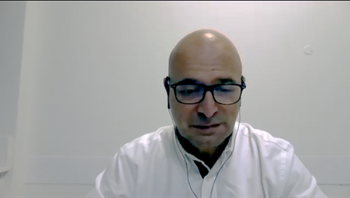
The head of the Laboratory of Clinical Pharmacology and Therapeutics at the University of Lisbon gave his perspective on the importance of the study population of this analysis.

The director of the Parkinson’s Foundation Center for Excellence at University of Kansas Medical Center detailed the pros and cons of levodopa-carbidopa intestinal gel.

The director of the VA Southwest Parkinson’s Disease Research, Education, and Clinical Centers spoke to the importance of patient-focused interventions in PD.

The director of the VA Southwest Parkinson’s Disease Research, Education, and Clinical Centers explained how social prescribing can play a key role in the prevention of social isolation.

The director of the Movement Disorders Program and Vance Lanier Chair of Neurology at Emory University School of Medicine gave his perspective on the interim findings of a long-term safety study of apomorphine sublingual film.

The director of the VA Southwest Parkinson’s Disease Research, Education, and Clinical Centers offered background the inspiration for the study and why loneliness should be addressed in these patients.
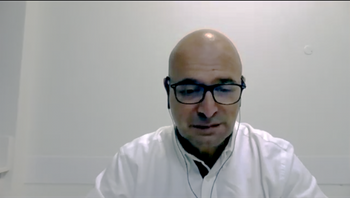
The head of the Laboratory of Clinical Pharmacology and Therapeutics at the University of Lisbon gave his perspective on the importance of the study population of this analysis.
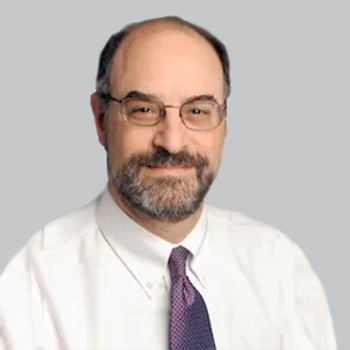
The recently approved apomorphine sublingual film (Kynmobi; Sunovion) maintained efficacy over the long-term, with at least 74% of patients experiencing full ON within 30 minutes post-dose at each time point.

The investigational drug consistently increased the proportion of patients no longer suffering from daytime sleepiness during treatment.

The percentage of patients reporting no OFF time and no impact of OFF on daily function more than doubled by the first on-treatment visit in this open-label trial.

The director of the VA Southwest Parkinson’s Disease Research, Education and Clinical Centers discussed how loneliness can impact Parkinson disease severity and how holistic approaches to care may help.

Benefits of levodopa-carbidopa intestinal gel lasted throughout the day and showed greater benefits of continuous dopaminergic stimulation in disease control than immediate release oral capsules.

The COMT inhibitor, which was approved in April 2020, may be a worthwhile option as a first-line adjunctive treatment for those with Parkinson disease with motor fluctuations.

Improvement in dyskinesia occurred after 2 weeks of treatment with levodopa-carbidopa intestinal gel and was sustained throughout the study.
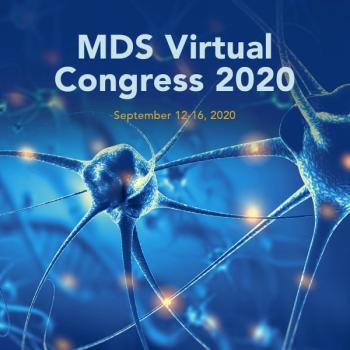
Supporting patient activation of their knowledge, skill, and confidence in managing their health may empower patients in times of stress.

Three-year data from a phase 1 study of Voyager Therapeutics’ VY-AADC01 suggest it is safe and offers potential benefits for patients with Parkinson disease.

Scores reflective of tremor in each body part and task performance improved by 71% in patients from baseline before first thalamotomy to 6 months after second thalamotomy.

After 3 months of treatment, an overwhelming number of clinicians and patients preferred directional over omnidirectional DBS.

Results from a phase 2 pilot study of nabilone in Parkinson disease suggest that the synthetic cannabinoid might hold therapeutic potential for nonmotor symptoms.

The wrist-worn wearable neuromodulation device for essential tremor was shown to be safe and efficacious in the PROSPECT trial, with more than 50% of patients experiencing a ≥50% improvement in tremor "power" or severity.

The drug, the only approved botulinum toxin type B on the market, was recently approved for the treatment of chronic sialorrhea in adults.

The clinical development of ND0612 includes 2 doses; a low dose for mid-stage Parkinson patients experiencing loss of motor control on oral therapy, and a high dose for severe disease in which oral drugs are no longer effective.

Acorda Therapeutics’ Inbrija, an inhalation powder formulation of levodopa, was associated with no significant increases in troublesome dyskinesia for patients being treated with carbidopa/levodopa.

Data of amantadine (Gocovri, Adamas) extended-release tablets suggested that the therapy is, in fact, safe and tolerable with a unique pharmacokinetic profile, and results in significant improvements in dyskinesia for patients with Parkinson disease.

Acadia Pharmaceuticals’ pimavanserin significantly improved Hamilton Depression Rating Scale scores for patients with Parkinson disease with depressive symptoms in an 8-week, open-label study.

Cerevel Therapeutics’ highly selective dopamine D1/D5 agonist showed significant reductions in UPDRS-III scores for those with early-stage Parkinson disease and is planned to enter phase 3 in 2020.
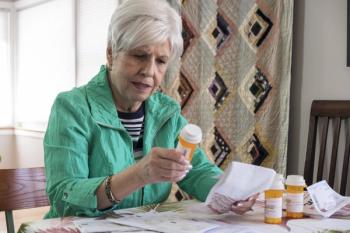
When considering treatment strategies for dementia, clinicians often focus on Alzheimer disease. However, Lewy body dementia also leads to a decline in cognition, movement, and mood and behavior.

Both low fat and ketogenic diets appear to be safe and may be even salutary in patients with Parkinson disease, according to new research.
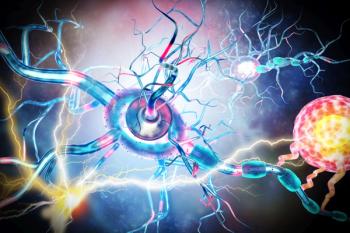
The latest research includes the development of novel device therapies, MRI-guided focused ultrasound, and DBS surgery.